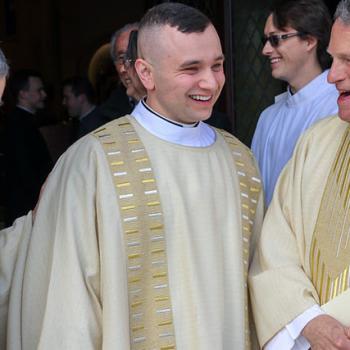
Money and how we spend it can be an emotional, even explosive issue for churches. Congregational discernment -- a spiritual practice that brings people together in prayer and deep reflection to listen to how God’s Spirit is leading the church -- can be especially helpful in matters involving stewardship of money.
Discernment is easy to recommend and difficult to do. Experience and understanding of God varies widely among individuals and congregations, making communal discernment a challenge but one that is well worth the time, patience, and energy.
As a spiritual practice, discerning God’s desire for us has clear biblical roots. We know from Deuteronomy 30:14 that God’s word is “very near to you; it is in your mouth and in your heart for you to observe.” And in the Beatitudes (Matthew 5 – 7) Jesus outlines some excellent benchmarks for making choices. Much of the later writing about discernment comes from two distinct strains of Christianity -- Quakers and Jesuits, traditions that place a heavy emphasis on discernment-in-community. If you are not a Quaker or a Jesuit, it is likely you need some practice in communal discernment or some reflection on how your community has listened to the leading of Christ in the past to understand how God speaks to communities. Communal or congregational discernment takes dedication to prayer, a willingness to let go of personal agendas, and a faith that not only does God does speak to us but we can develop “ears to hear” that voice.
Prayer Is Essential
If you aren’t praying, it isn’t likely that your congregation will hear God’s voice. Contemplative prayer (silence, deep reflection, waiting on God’s response) has a way of opening us to Divine possibilities. Two contemplative practices that are especially helpful for congregational discernment are the Awareness Examen and Lectio Divina.
Let’s suppose a church’s leadership team has noticed that it has not set aside a tithe for missions. This would be an excellent item for communal discernment. Since the place to start is prayer, the worship leader might make time one Sunday for a large group Examen, a traditional Jesuit practice of considering our actions in light of our faith. He or she could hand out a list of the major expenditures of the church, and allow time for silent reflection and sharing on these two questions:
As you consider these budget items in prayer, which ones fill you with the most gratitude and joy?
As you consider these budget items in prayer, which ones leave you with the least gratitude and joy?
With a group Examen, it is important to move beyond what each individual has to say on the issue and ask, “What is the Spirit saying to the church as we consider these responses?” Doing one Examen in worship would not necessarily complete discernment on that topic, but would be an excellent beginning.
Taking the same case -- congregational giving to mission -- the worship team could also lead a time of Lectio Divina (praying with scripture) using a passage about giving, such as the story of the widow’s last coin, Mark 12:41-44. Before reading it, the congregation is asked to be in prayer, listening for a word, phrase, or image that feels significant to them. The passage is read through two or three times slowly, with silence between the readings. Members could be asked to share their word out loud or to remain in silence. To move this from individual reflection to communal reflection, the worship leader would ask how that word connects with the life of the congregation, especially around matters of giving. Time for discussion could be included in worship or after.
Typical Block to Discernment
We discover a lot about ourselves and our congregations in discernment. One typical block that arises in discernment is stubbornness -- wanting our own way about matters. Jesuit founder Ignatius of Loyola taught that we need to keep the outcome of any discernment matter in God’s hands, not our own. We must be willing to have our minds and hearts changed by information, compassion, and wisdom shared by others. If we do not feel this openness or “holy indifference” that Ignatius taught, we need to ask for it in prayer.
Gathering Information Is Important
Returning to our case study, we find the leadership team has decided that yes, the congregation does intend to tithe. It would then need to gather information about how the budget might be restructured so that 10 percent of the church income is earmarked for mission giving. This brings up a new question, “What might we cut back on in order to set aside 10 percent?” Gathering information on this question could include a brainstorming session in which people merely offer ideas without initially evaluating any of them. Quakers sometimes hold what they call “threshing” meetings to get a myriad of ideas and differences of opinions on the table before focusing on what is essential. You can also use focus groups or small groups that report back to a larger group.





